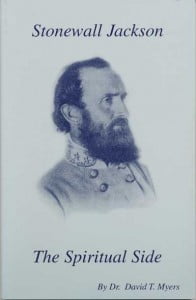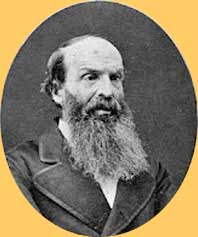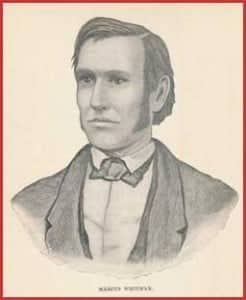William Morrison, a son of Daniel and Janette (McFarland) Morrison, was born in Perthshire, Scotland, in the year 1748. Raised in near poverty, William overcame difficult circumstances to obtain a good education and eventually was able to prepare for the ministry, studying under the guidance of the Rev. Robert Annan, who was then living near Philadelphia.
By God’s providence, Rev. Morrison came to be the pastor of the congregation in Londonderry, New Hampshire, being installed as their pastor in 1783. And here he remained till the close of his life. Some eight days before his death, he preached a funeral sermon for a member of his congregation, preaching on the text of Psalm 39:4, “Lord, make me to know mine end.” The next week, while visiting a nearby school, he became ill. Then within a few days, the illness turned grave and it was apparent that the end was near. “On Sabbath morning, he said to his wife—’You know that the Sabbath has always been my best day, and my employment then my best employment. But this is the last Sabbath I shall spend on earth. In a short time, I shall be spending an everlasting Sabbath.’ He added with a smile,—’Will not that be a blessed exchange?’ Late that same day, he died, just as the words “Come, come, Lord Jesus,” had passed from his lips,—on March 9, 1818, at the age of seventy.
In his funeral sermon, the Rev. Dr. Daniel Dana said of Rev. Morrision:
“Dr. Morrison ranked well with the excellent preachers of his day. It was in the pulpit that his perceptions, his acquisitions, and the energies of his mind had full scope, and the affections of his heart poured themselves forth in a tide of devout and benevolent feeling. His sermons were full of Gospel truth; were luminous and instructive; faithful and searching; awfully alarming to the wicked, yet encouraging to the sincere, and tenderly consoling to the mourner in Zion. His prayers were no less impressive than his sermons. Replete with reverence and affectionate devotion; the breathings of a soul apparently in near communion with God; full yet concise; adapted to occasions and circumstances; they could scarcely fail to impress and edify the hearers. His manner in the pulpit was peculiar. It had something of patriarchal simplicity; something of apostolic gravity and authority. Yet it was mild, affectionate and persuasive. It indicated a mind absorbed in Heavenly things, deeply conscious of its awful charge, and anxiously intent to fasten eternal truths on the hearts and consciences of men.”
“As a Pastor, Dr. Morrison was faithful, assiduous and tender; instant in season and out of season; watching for souls as one that must give account; and finding his delight in the discharge of the most laborious and exhausting duties of his office. Little did he spare himself, even in those closing years of life, in which his emaciated form proclaimed the ravages of disease; and infirmity, combined with age, seemed to demand repose. Without exaggeration, it may be said that he was truly the father of his beloved people. He rejoiced in their joys, sympathized in their sorrows, counseled in their perplexities, adapted himself to their infirmities, and, without sacrificing dignity, or independence, or faithfulness, ‘became all things to all men.’ that he might promote their spiritual good.”
Words to Live By:
It has been said that pastors are often a good mirror of the congregation they serve.
Lord, give us pastors with hearts that burn with the Gospel of grace, who long to serve Your people, to see them raised up in greater maturity in Christ as Savior and Lord. But first, Lord, make us to be a people who hunger and thirst after the righteousness which is found in Christ alone.




